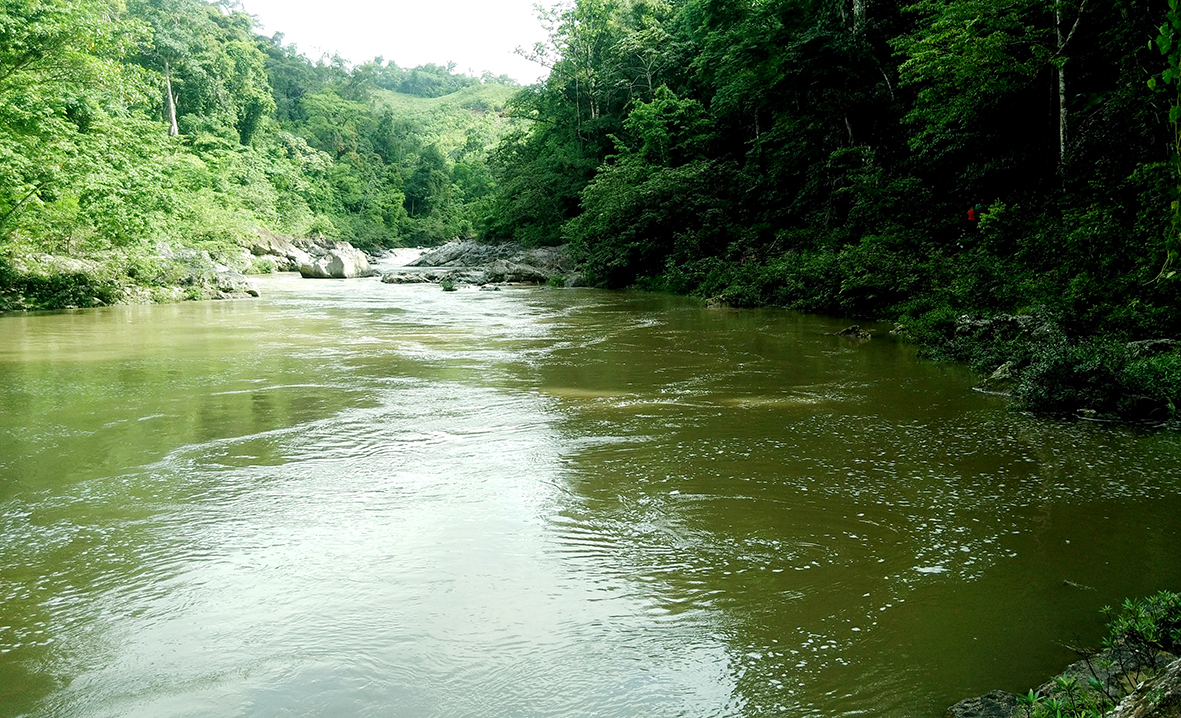A little over a month ago I visited the Blue Harvest Project in El Salvador and Honduras. Blue Harvest stands for what it aims to do: Harvesting water in coffee plantations. It is an initiative developed by Catholic Relief Services and is a part of the SAFE Platform. In general, the project seeks to promote water resource management with a water-smart agricultural approach. This is used as a high impact model of sustainable production in priority coffee producing zones within water sensitive areas.
Visiting coffee plantations in Honduras and El Salvador is always an energizing experience for me. Nevertheless, draught and excessive use of agrochemicals has depleted many of these landscapes of its original vitality. In most cases, plantations have lost their natural essence and have transitioned into a synthetic, unsightly view. I was psychologically prepared for this sight and was very surprised to find something completely different.
Blue Harvest has the challenge of attaining two goals that are apparently opposite. The first one is to reach more production and agricultural productivity and the second is to safeguard water sources. The good news is that it is achieving both.

Photo: Adolfo Córdoba
The project is home to large quantities of recovered coffee trees, some of them as young as 2-3 years old and already producing a high amount of fruit: It was evident for me that the project invests in harvest renovation. Furthermore, an eight-centimeter long beetle hidden behind a coffee leaf made me realize that environmental management is possible and desirable in agricultural production.
Soon I discovered that Blue Harvest actually harvests great relationship with local governments, youth community groups, rural water-management initiatives, cooperatives and producer organizations. It has also harvested an improved environment, and networks among public, private and key local actors.
Effective measures
For this project, CRS has set one wide operational and administrative structure, divided between target countries: Honduras, El Salvador and Nicaragua and sharing. They share technical and logistical resources. Maren Barbee is coordinating the project at the field level, Marco Sanjuan is in charge of operations in El Salvador, Rony Estrada oversees Honduras and Wendell Erazo supports the project in terms of market relations. The project has a base of engineers and agricultural extension agents that bring technical support to the structure.

Photo: Adolfo Córdoba
Meeting the project’s staff, allies and stakeholders was very interesting. They are all very much involved in it the Blue Harvest and radiate a sense of belonging. For them, talking about challenges is no problem: in El Salvador, for example, cooperatives regret the impact of the rust plague. Low coffee productivity is doubtlessly one of the major challenges organizations and producers must overcome, due to the fact that their plantations were old and they grew varieties that were not resistant to the plague.
This is why the project applies simple, diverse measures that prove to be effective through time. Among these, we have: less pesticide use (you can see the presence of fauna in the coffee plantations), vegetation reduction among crops without its complete elimination to allow water retention at the surface, creation of small holes to improve water filtration, and experimenting with new graft varieties. Other measures include nursery support, practices to avoid erosion, production and use of coffee twigs compost, traditional coffee farm water residue treatment and pruning time programming, among others. This has resulted in improved productivity, early production in renewed coffee plantations and healthier production areas.
Opportunities
What I saw is a project with huge potential and opportunities to improve even more: it would be interesting to see hydro-ecological studies that indicate how, where and how much water is collected. Nevertheless, the project has done an amazing work in terms of good practices among producers which have resulted in a noticeable water level increase in springs and rivers, according to the opinion of different actors.
I also noticed some concern in terms of improving market relationships. The work that CRS is doing in this sense is just starting. It is important to point out that conversations with an international company have set off recently, with the idea of including Blue Harvest producers in their stock.
Something tells me we will hear much more from this project and from its great network in the future…
